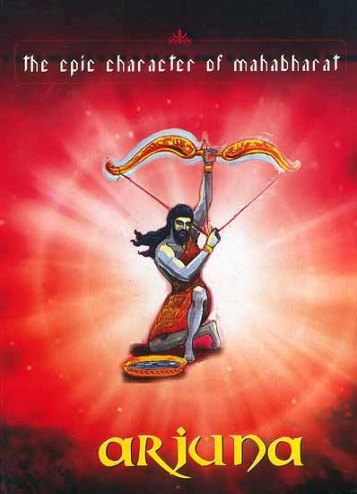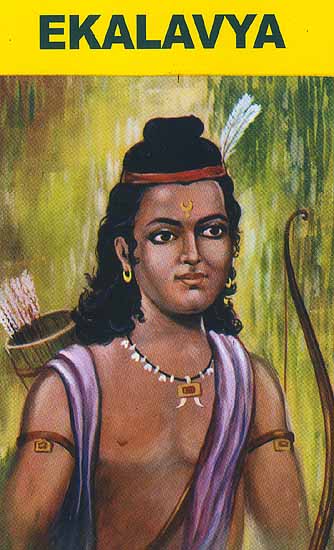Are you surprised by my question?
First of all, why don’t we understand two characters from ‘Hindu Mythology’ before we talk about your ‘Learning style’ and our ‘Assessment approach’, shall we?
You may already know the characters and heard most of the stories from Mahabharat; read the description of 2 characters specifically the underlined text. Read out slowly (or aloud) as you read for your best ‘comprehension’ in English. I intend to use these traits of a good learner in my post… Read on.
-As per the epic Mahabharata
(source: Wikipedia)
Arjuna (meaning ‘bright’ or ‘silver’) is the 3rd of the Pandavas, who with Krishna, is considered to be the hero of the Hindu epic Mahabharata. He plays the role of a good listener in the Bhagavad Gita. Arjuna was considered the finest archer and a peerless warrior by many notable figures in the Mahabharata. He is the only undefeated hero in the Mahabharata. He was a (full-time) student of guru Drona. He also learned archery (in practicing) with Kirants of Nepal in a disguise as Kirants were renown archers of that time.
Arjuna was also well trained in religion, science, administration. He became a master in using the bow and the arrow (Archery). He was the best archer except a Kirant prince called Ekalavya whom Drona tricked into vowing never to raise a bow. Arjuna’s strength lay in his extraordinary levels of concentration. In a famous incident under Drona’s tutelage, Drona deemed none of his students other than Arjuna- who had the steadfast focus to shoot the eye of the bird on a tree.
Interestingly, I used to read a lot of ‘Amar Chitra Katha’ during my childhood. Great its coming to good use to build an example or a case study for my students :-).
I Leave the story here to pick-up some important points on How Arjuna Learned Archery (as skill like speaking English):
- He was a good listener – he asked right questions, had great concentration;
- Full-time student of his trainer of Archery at his academy, learned for many years;
- Practiced and polished his skills with Kirants -or the best Archers of that time.
- He was undefeated in the war and is still considered the real Hero.
- He was the best Archer of his time (Except one) – our next hero Eklavaya.
Coming back to ‘the story’ mythology…
Ekalavya is also a character from the same Hindu epic, the Mahābhārata and therefore the stories of Arjuna and Ekalavya must be connected. We do find some connection on their Learning Archery from the same trainer. Read on the profile of our second character.
Ekalavya: He was a young prince of the Nishadha, a confederation of jungle tribes in Ancient India (now part of Nepal). Ekalavya aspired to study archery in the gurukul of Guru Drona (same academy where Arjuna went to study), the greatest known teacher in the use of weaponry and martial knowledge at the time. He sincerely sought the mentor-ship of Drona in weaponry and martial arts. Drona discouraged him, and ultimately rejected the boy due to his caste.
Self-study of Ekalavya: Aspiring to be an Archer like Drona, Ekalavya began a program of self-study, using a clay image of Drona for inspiration. Eventually, he achieved a level of skill superior to that of Arjuna, who was Drona’s favorite and most accomplished full-time student, and part of the royal Pandava family. The Pandavas come across the boy in the forest one day, and Eklavya told them of his self-study under the idol of Drona. In a dramatically cruel move, the guru demanded that Eklavya cut off his right thumb in obeisance to his guru, a request that could not be refused by a student. Eklavya agreed to the demand without hesitation, cutting his right thumb and presenting it to Drona as Gurudakshina*
(*Trainer’s fee – I also love to get fee for training but only from my full-time students 🙂 )
Again, leaving the story here to concentrate on the key Points on How Ekalavaya Learned Archery:
- He aspired to study under the best trainer of the time and be the best
- His trainer could have given him the knowledge on usage of weaponry and martial skills but refused
- He does self-study taking inspiration from the image of the ‘role model’ -his virtual guru
- With only a virtual trainer and his own hard work, he achieved a level of skill superior to that was taught to full-time student by the same trainer
- With practice, his skills with ‘the bow and arrow’ developed as he kept practicing with ‘the best archers of his time’; he had a lot of self-motivation and determination to be the best.
I ponder, if there are students who can remain motivated to learn on their own for 2-3 months without being inspired or pushed to practice in a class-room or language lab.! We are now exposed to many methods to know about ‘Spoken English’ – like emails, blogs, web-sites, on-line or on-phone programs, self-study CDs, kits or books – you as a student should use what suites you the best to Learn. There must always be some method for transfer of knowledge between the teacher and student.
Take a quiz to assess your Learning Style and mail me the output for interpretation/analysis. This is very useful to give you practice tips, must be done within 7 days of the start of the program with us. As we see, from the stories of the 2 archers above, there can be 2 major categories of learners:
- Students of Type A: who need constant support and want the trainer to speak to them more in the Class, they need guidance and instructions as well as every-day inspiration – they are good listeners and may have great concentration to see and observe in a Sm@rt Class. They may need a gentle push (or a prompt) and constant encouragement to put their knowledge into practice. They need more group practice as they also need to compete with other learners in the class, sometimes they take time to speak-up They typically ask more questions (sometimes even if they know the answers as they need a confirmation of the trainer)
- Students of Type B: who learn by doing more, spend more time in the Language L@b and they participate more in the Class they just need some corrective feedback or encouragement from time to time. They may need inspiration maybe once in a week and can get it from various sources (have a role-model to follow besides the trainer). They also pick-up and share the CDs, books and use internet to check what other resources are available for self-study. They volunteer for doing some work to support class activities and come prepared with the topic of the day. They compete with themselves.
- Both have one thing in Common: a desire to Learn
Arjuna-Ekalavya never fought any war with each other to prove who was superior, so it is difficult to say which learning style is better to Learn to Speak in English. In real-life also we see that both find their own pace and get the right types of learning environment and the trainers as they desire. Both types of Learners can speak well!
Indian education system produces more Type A Students than Type B; Type A are likely to seek more counsel before they start.
Please make it clear during your counselling that you are exposed to all the four learning methods: Listen, Read, See and Doing (practice), ‘As any good trainer should’, we give you exposure to all the four methods of learning so that all types of learners are benefited. We have a dedicated Language L@b where we provide unlimited practice time and Sm@rt classrooms where trainers give you conceptual understanding and discuss topics of interest. Speaking Fluent English is a skill there is no escape from Practice for both type A or B – to learn it faster both also need to do the practice under the supervision of a qualified coach who can guide them to do it right.
So are you type A Learner: like Arjuna or type B learner like Ekalavya. If you don’t know your learning style we give you a small questionnaire to fill in the assessment center to help you figure it out.
In our grammatical skill assessment test, you may also come out be like a Hanuman – who does not know his powers until someone reminds him (yes the story from Ramayana as you may have read it)
The Type B Learners are more likely to read my posts on this blog to get some inspiration of general guidance on practice. Unfortunately they are less likely to walk-in for an English Study Program as they are confident that they can acquire great skill to Speak good English by practice itself. Drop-by if you need motivation or inspiration. Don’t fret I generally don’t demand a tongue!



